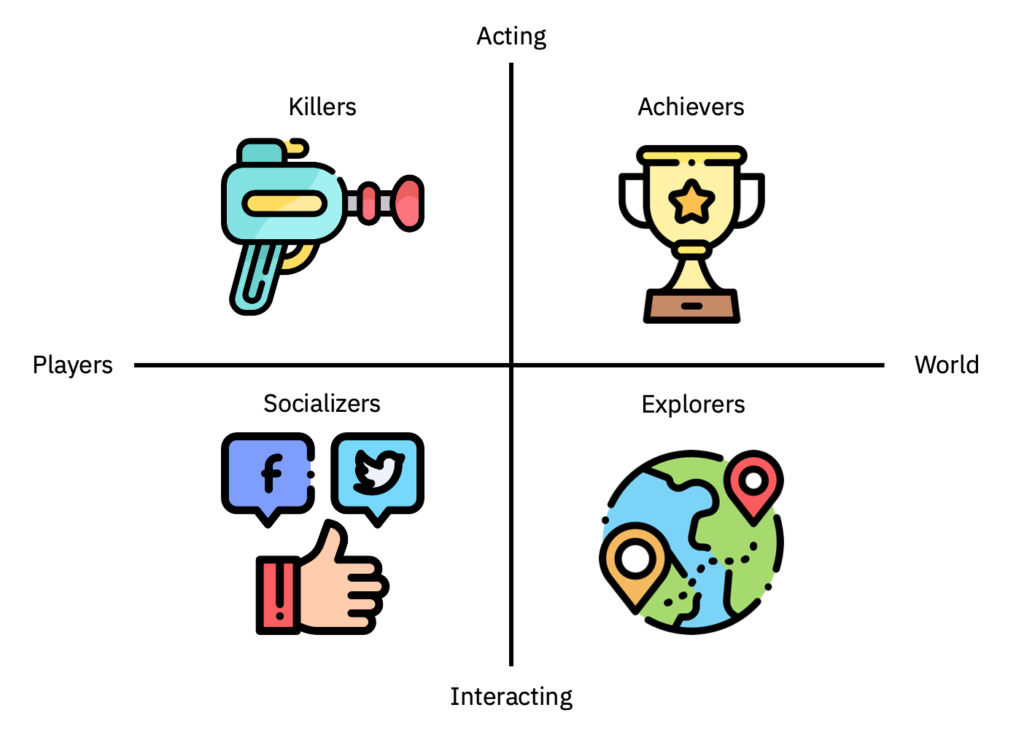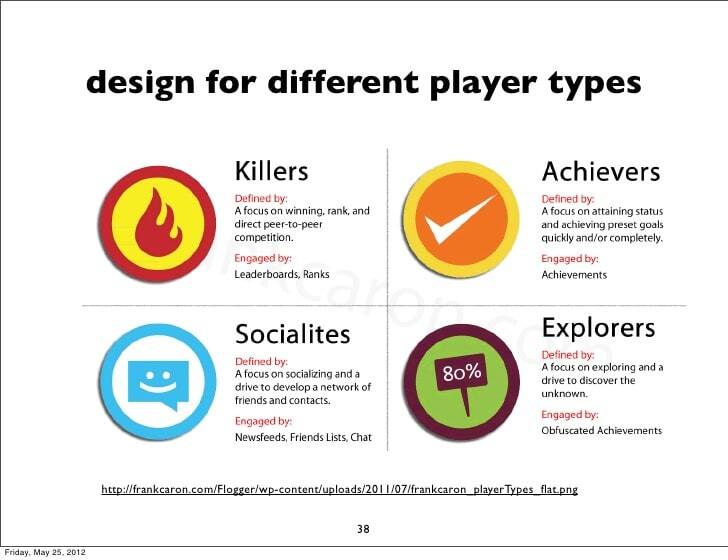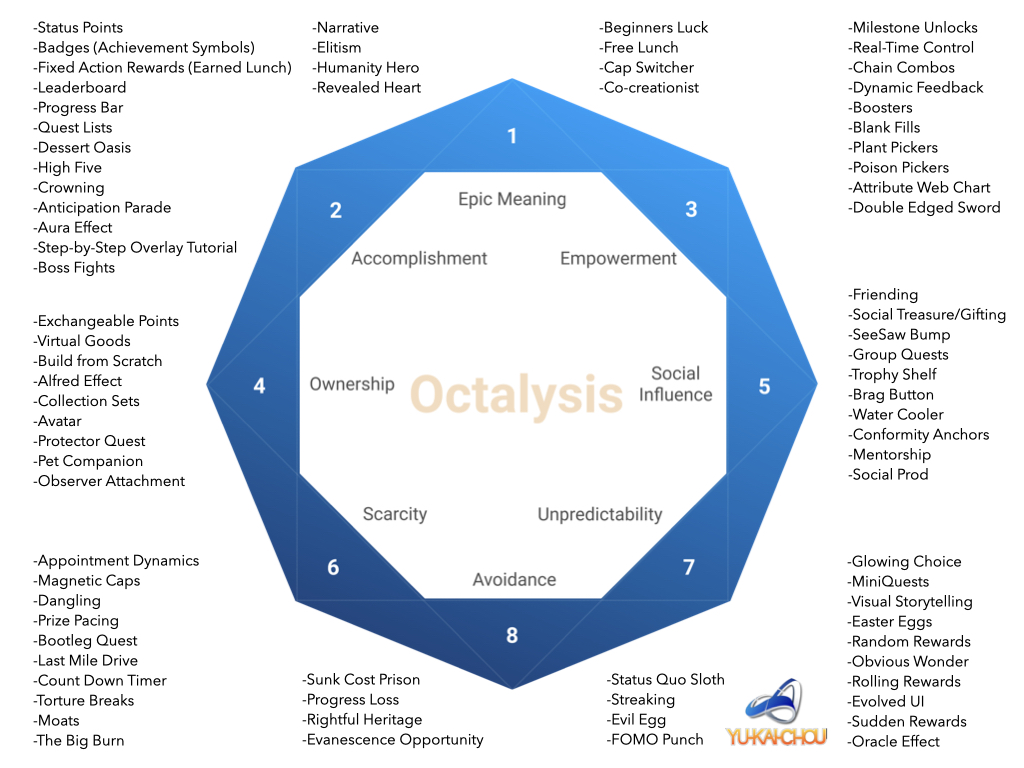Johan Huizinga, Homo Ludens
Play is older then society
Play is older than culture, for culture, however inadequately defined, always presupposes human society, and animals have not waited for man to teach them their playing.[7]
Play is meaningful by itself
(…) play is more than a mere physiological phenomenon or a psychological reflex. I t goes beyond the confines of purely physical or purely biological activity. It is a significant function-that is to say, there is some sense to it. In play there is something “at play” which transcends the immediate needs of life and imparts meaning to the action. All play means something.
Society can be viewed as a play
One might call society a game in the formal sense, if one bears in mind that such a game is the living principle of all civilization.[27]
Play can absorb us
in this intensity, this absorption, this power of maddening, lies the very essence, the primordial quality of play.
Play is conscious
We play and know that we play, so we must be more than merely rational beings, for play is irrational.
Play is necessarily for living
for the adult and responsible human being play is a function which he could equally well leave alone. Play is superfluous. The need for it is only urgent to the extent that the enjoyment of it makes it a need. Play can be deferred or suspended at any time. It is never imposed by physical necessity or moral duty. It is never a task. It is done at leisure, during “free time” .
(…)
It adorns life, amplifies it and is to that extent a necessity both for the individual-as a life function-and for society by reason of the meaning it contains, its significance, its expressive value, its spiritual and social associations, in short, as a culture function.
Play happens within a limited time
It can be repeated at any time, whether it be “child’s play” or a game of chess, or at fixed intervals like a mystery. In this faculty of repetition lies one of the most essential qualities of play.
Play happens within limited space
All play moves and has its being within a playground marked off beforehand either materially or ideally, deliberately or as a matter of course.
Play is thrilling
Play casts a spell over us ; it is “enchanting” , “captivating” . (…) Tension means uncertainty, chanciness ; a striving to decide the issue and so end it.
Play requires rules
All play has its rules. They determine what “holds” in the temporary world circumscribed by play. The rules of a game are absolutely binding and allow no doubt. (…) as soon as the rules are transgressed the whole play-world collapses.
(…)
The player who trespasses against the rules or ignores them is a “spoil-sport” . The spoil-sport is not the same as the false player, the cheat; for the latter pretends to be playing the game and, on the face of it, still acknowledges the magic circle. (…) spoil-sport shatters the play-world itself. By withdrawing from the game he reveals the relativity and fragility of the play-world in which he had temporarily shut himself with others. He robs play of its illusion.
(…)
In the world of high seriousness, too, the cheat and the hypocrite have always had an easier time of it than the spoil-sports, here called apostates, heretics, innovators, prophets, conscientious objectors, etc. It sometimes happens, however, that the spoil-sports in their turn make a new community with rules of its own. The outlaw, the revolutionary, the cabbalist or member of a secret society, indeed heretics of all kinds are of a highly associative if not sociable disposition, and a certain element of play is prominent in all their doings.
Play creates groups
A play-community generally tends to become permanent even after the game is over. Of course, not every game of marbles or every bridge-party leads to the founding of a club. But the feeling of being “apart together” in an exceptional situation, of sharing something important, of mutually withdrawing from the rest of the world and rejecting the usual norms, retains its magic beyond the duration of the individual game.
Play creates mystery
it loves to surround itself with an air of secrecy. (…) Inside the circle of the game the laws and customs of ordinary life no longer count. We are different and do things differently.
(…)
The “differentness” and secrecy of play are most vividly expressed in “dressing up” . (…) The disguised or masked individual “plays” another part, another being. He is another being. The terrors of childhood, open-hearted gaiety, mystic fantasy and sacred awe are all inextricably entangled in this strange business of masks and disguises.
Play is representation and/or contest
the game “represents” a contest, or else becomes a contest for the best representation of something. Representation means display, and this may simply consist in the exhibition of something naturally given, before an audience.
Mood of play is unstable
The joy inextricably bound up with playing can turn not only into tension, but into elation. Frivolity and ecstasy are the twin poles between which play moves.
The play-mood is labile in its very nature. At any moment “ordinary life” may reassert its rights either by an impact from without, which interrupts the game, or by an offence against the rules, or else from within, by a collapse of the play spirit, a sobering, a disenchantment.
5 characteristics play must have
- Play is free, is in fact freedom.
“Play to order is no longer play : it could at best be but a forcible imitation of it”) - Play is not “ordinary” or “real” life.
“Every child knows perfectly well that he is “only pretending” , or that it was “only for fun”) - Play is distinct from “ordinary” life both as to locality and duration.
“Play is distinct from “ordinary” life both as to locality and duration. (…) It is “played out” within certain limits of time and place. It contains its own course and meaning.” - Play creates order, is order. Play demands order absolute and supreme.
- Play is connected with no material interest, and no profit can be gained from it.
Summing up the formal characteristics of play we might call it a free activity standing quite consciously outside “ordinary” life as being “not serious,” but at the same time absorbing the player intensely and utterly. It is an activity connected with no material interest, and no profit can be gained by it. It proceeds within its own proper boundaries of time and space according to fixed rules and in an orderly manner. It promotes the formation of social groupings which tend to surround themselves with secrecy and to stress their difference from the common world by disguise or other means.[5]
Roger Caillois, Man, Play and Games
6 characteristics play must have
Caillois disputed Huizinga’s emphasis on competition in play. He also noted the considerable difficulty in arriving at a comprehensive definition of play, concluding that play is best described by six core characteristics:
- it is free, or not obligatory
- it is separate from the routine of life, occupying its own time and space
- it is uncertain, so that the results of play cannot be pre-determined and the player’s initiative is involved
- it is unproductive in that it creates no wealth, and ends as it begins economically speaking
- it is governed by rules that suspend ordinary laws and behaviours and that must be followed by players
- it involves imagined realities that may be set against ‘real life’. (source)
4 categories of games
- Competition. It’s the form of play in which a specific set of skills is put to the test among players (strength, intelligence, memory). The winner is who proves to have mastery of said skill through the game. E.g. chess.
- Chance, “the resignation of will, an abandonment to destiny.” Chance leaves that to luck, an external agent decides who the victor is. E.g. playing a slot machine.
- Mimicry. “When the individual plays to believe, to make himself or others believe that he is different from himself.” E.g. playing an online role-playing game.
- Vertigo – altering perception by experiencing a strong emotion (panic, fear, ecstasy) the stronger the emotion is, the stronger the sense of excitement and fun becomes. E.g. taking hallucinogens, riding roller coasters, children spinning until they fall down. (source)
Dualistic polarity of games
- Uncontrolled fantasy, spontaneous play through improvisation, the rules of which are created during playing time. E.g. concerts and festivals.
- Ludus which requires effort, patience, skill, or ingenuity, the rules are set from the beginning and the game was designed before playing time. E.g. the Chinese game of Go.
Gamification elementes
Main gamification elements
- Clear goal
Why are we even doing what we are doing? Where are we heading with this activity? What are we trying to achieve? - Flexibility
The way players will achieve their goal is up to them (there is more than one way how to do it) - Clear rules
- Rewards
- Quest / Achievements
Ways how to track the progress - Feedback
Ways how to see if what I am doing is working or not - Narrative / Story
The way how to enhance the players’ experience, motivation, and understanding.
4 types of players


Gamification as a human-focus design from Yu-kai Chou
- Epic meaning and calling (doing something bigger than I am; Wikipedia contribution)
- Development and accomplishment (that’s why we use leader-boards, badges, etc.)
- Empowerment of creativity and feedback (trying something new and getting feedback on results)
- Ownership and possession (drive to own something; when you have it, you wanna protect it)
- Social pressure & Envy (wanting to be better than others)
- Scarcity and impatience (you want something just because you can’t have it)
- Unpredictability & curiosity (about what is going to happen)
- Loss & Avoidance (people do things to avoid a loss – loosing progress, avoiding failure)

4 phases of game experience
- Discovery of game (either you hook them, or you loose them)
- Onboarding (people learn the rules of game and should get exited about applying them)
- Scaffolding (gamers takes the rules and what they learned and try to reach a win situation – the most fun part)
- Endgame (you are already an expert in the game and you are miling it)
